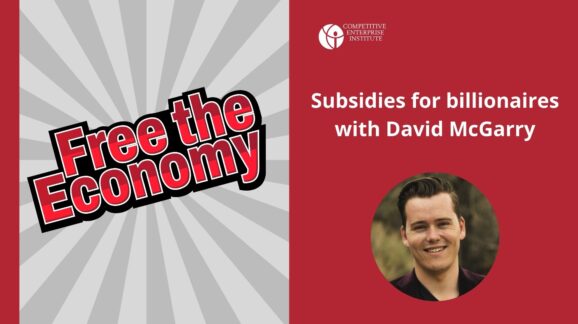There are two main areas in which Congress can enact meaningful reform. The first is to rein in regulatory guidance documents, which we refer to as “regulatory dark matter,” whereby agencies regulate through Federal Register notices, guidance documents, and other means outside standard rulemaking procedure. The second is to enact a series of reforms to increase agency transparency and accountability of all regulation and guidance. These include annual regulatory report cards for rulemaking agencies and regulatory cost estimates from the Office of Management and Budget for more than just a small subset of rules.
In 2019, President Trump signed two executive orders aimed at stopping the practice of agencies using guidance documents to effectively implement policy without going through the legally required notice and comment process.
Featured Posts

Blog
The week in regulations: Bird hunting and food coloring
The Federal Register’s website became less transparent about rule counts and other data. President Trump threatened to send the military into a third city. The…

Blog
Free the Economy podcast: Subsidies for billionaires with David McGarry
In this week’s episode we cover White House intervention in corporate ownership, the nation’s falling economic freedom ranking, and welcome new…

News Release
Federal appeals court rules on NLRB unconstitutionality
The 5th Circuit Court of Appeals today issued a ruling suggesting the structure of the federal government’s top labor dispute regulator, the National Labor Relations…
Search Posts
Op-Eds
The Green Machine
Click on pdf link above to obtain full version of article Twenty EU member and accession states labour under a cadre…
Op-Eds
Russian Revolution
On <?xml:namespace prefix = st1 ns = “urn:schemas-microsoft-com:office:smarttags” />December 2, 2003, Andrei Illarionov, Russian President Vladimir Putin's chief economic adviser, stunned green activists…
Op-Eds
Resentment, fear drive U.N. quest for control
There’s mounting evidence that the Internet’s good old days as a global cyberzone of freedom—where governments generally take a "hands off" approach—may be numbered.
Op-Eds
Wishful Anti-spam Thinking
Tomorrow, the House is expected to pass new anti-spam legislation. The effort is understandable: The increasingly apparent downside of an Internet on which you…
Op-Eds
Rescuing Free Trade From the Bureaucrats & Special Interests
Full article available in pdf format.<?xml:namespace prefix = o ns = “urn:schemas-microsoft-com:office:office” /> In the aftermath of the…
Study
The Power of Positive Drinking: Are Alcoholic Beverage Health Claims Constitutionally Protected
Full Document Available in PDF Food and…
Staff & Scholars

Clyde Wayne Crews
Fred L. Smith Fellow in Regulatory Studies
- Business and Government
- Consumer Freedom
- Deregulation

Ryan Young
Senior Economist
- Antitrust
- Business and Government
- Regulatory Reform

Fred L. Smith, Jr.
Founder; Chairman Emeritus
- Automobiles and Roads
- Aviation
- Business and Government

Sam Kazman
Counsel Emeritus
- Antitrust
- Automobiles and Roads
- Banking and Finance

Marlo Lewis, Jr.
Senior Fellow
- Climate
- Energy
- Energy and Environment